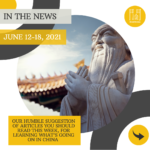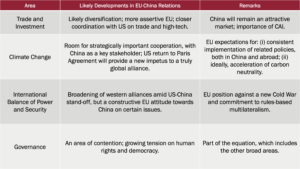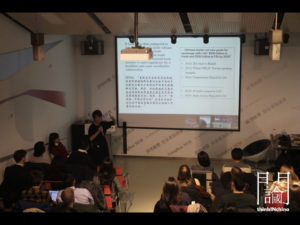-
20 Apr
#79 – China’s Covid-19 Vaccine Diplomacy
SPEAKER
HUANG Yanzhong, Senior Fellow for Global Health, Council on Foreign Relations; Director of Global Health Studies, Seton Hall University’s School of Diplomacy and International Relations.
ABSTRACT
During a speech at the World Health Assembly in May 2020, President Xi Jinping promised that China’s vaccine, once developed, would have been made a “global public good”. This was taken to be a sign of China’s contribution to ensuring vaccine accessibility and affordability in developing countries, in a united fight against the COVID-19 pandemic. Up to now, more than 600 million doses have been sold to more than 45 countries, and a further 14 million doses have been donated by China. Inoculations have begun in more than 25 countries, with the delivery of the first 150 million doses. Indonesia, Brazil, and Mexico are so far the leading recipients of Chinese vaccines.
After a slow start in the domestic vaccination campaign, with 5 approved shots, China is now pushing to vaccinate half a billion of its citizens by the end of June. This is a deeply different goal, compared to just a couple of months ago when the majority of the production was targeted to be shipped abroad. After more than a year of a “zero-infections” policy and stringent international travel restrictions to curb imported cases that have led to months without local infections, China is now rolling out mass vaccination campaigns to avoid falling into the “immunity gap” with Western countries, that are fully committed on reaching herd immunity as soon as possible. But a major question arises, can China’s production capacity cope with both the demands from domestic needs and the countries it has signed contracts with? And with the concerns about the efficacy rate of its vaccines, what should we expect for the upcoming months?
For answers to these pressing questions, join ThinkINchina for a new online event with Professor Huang Yanzhong, senior fellow for global health at the Council on Foreign Relations, director of global health studies at Seton Hall University’s School of Diplomacy and International Relations, and author of Toxic Politics: China’s Environmental Health Crisis and Its Challenge to the Chinese State.
The event will be organized on Zoom, PLEASE REGISTER HERE ON EVENTBRITE, the day before the event you will receive the link to join the talk. Our speaker is based in New Jersey, USA while we are based in Beijing, China – we decided therefore to schedule the talk at 9 pm Beijing time, 9 am East Coast time.
SUGGESTED READINGS
- China COVID-19 Vaccines Tracker, Bridge Beijing
- China administers 200 million doses domestically, Associated Press, April 22, 2021
- Some parts of China battle tight supply of COVID-19 vaccines, Reuters, April 21, 2021
- China cannot win the great vaccine diplomacy game without vaccines, Samantha Kiernan and Yanzhong Huang, Nikkei Asia, April 18, 2021
- Chile leads the Western Hemisphere in vaccinations. The coronavirus is still surging, John Bartlett, The Washington Post, April 17, 2021
- What the WHO investigation reveals about the origins of COVID-19, Yanzhong Huang, Foreign Affairs, March 31, 2021
- Vaccine diplomacy is paying off for China, Yanzhong Huang, Foreign Affairs, March 11, 2021
- China’s vaccine diplomacy in the Middle East, Austin Bodetti, The Diplomat, January 16, 2021
- Why mass vaccination in the West could be bad news for Chinese leaders, Yanzhong Huang, Think Global Health, December 10, 2020
Related Posts
- 10000
 HUANG Yanzhong, Senior Fellow for Global Health, Council on Foreign Relations; Director of Global Health Studies, Seton Hall University's School of Diplomacy and International Relations. Huang Yanzhong is a senior fellow for global health at the Council on Foreign Relations, where he directs the Global Health Governance roundtable…
HUANG Yanzhong, Senior Fellow for Global Health, Council on Foreign Relations; Director of Global Health Studies, Seton Hall University's School of Diplomacy and International Relations. Huang Yanzhong is a senior fellow for global health at the Council on Foreign Relations, where he directs the Global Health Governance roundtable… - 10000
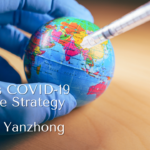 SPEAKER HUANG Yanzhong, Senior Fellow for Global Health, Council on Foreign Relations; Director of Global Health Studies, Seton Hall University's School of Diplomacy and International Relations. FULL VIDEO ON OUR YOUTUBE CHANNEL REPORT On May 6th, 2021 ThinkINchina online event#79 focused on China’s COVID-19 vaccine…
SPEAKER HUANG Yanzhong, Senior Fellow for Global Health, Council on Foreign Relations; Director of Global Health Studies, Seton Hall University's School of Diplomacy and International Relations. FULL VIDEO ON OUR YOUTUBE CHANNEL REPORT On May 6th, 2021 ThinkINchina online event#79 focused on China’s COVID-19 vaccine…
Read more... -
20 Apr
HUANG Yanzhong
HUANG Yanzhong, Senior Fellow for Global Health, Council on Foreign Relations; Director of Global Health Studies, Seton Hall University’s School of Diplomacy and International Relations.
Huang Yanzhong is a senior fellow for global health at the Council on Foreign Relations, where he directs the Global Health Governance roundtable series. He is also a professor and the director of global health studies at Seton Hall University’s School of Diplomacy and International Relations, where he developed the first academic concentration among U.S. professional schools of international affairs that explicitly addresses the security and foreign policy aspects of health issues. He is the founding editor of Global Health Governance: The Scholarly Journal for the New Health Security Paradigm.
Dr. Huang has written extensively on China and global health. He is the author of Governing Health in Contemporary China (2013) and Toxic Politics: China’s Environmental Health Crisis and its Challenge to the Chinese State (2020). He has also published numerous reports, journal articles, and book chapters, including articles in Survival, Foreign Affairs, Public Health, Bioterrorism and Biosecurity, and China Leadership Monitor, as well as opinion pieces in the New York Times, the Washington Post, Foreign Policy, and the South China Morning Post, among others.
Dr. Huang is a life member of the Council on Foreign Relations, a member of the National Committee on U.S.-China Relations, and a board member of the Institute of Global Health. He previously was a research associate at the National Asia Research Program, a public intellectuals fellow at the National Committee on U.S.-China Relations, an associate fellow at the Asia Society, a visiting senior research fellow at the National University of Singapore, and a visiting fellow at the Center for Strategic and International Studies. He has taught at Barnard College and Columbia University. He obtained his BA and MA from Fudan University and his Ph.D. from the University of Chicago.
Related Posts
- 90
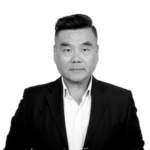 CUI Hongjian 崔洪建, Director, Department for European Studies, China Institute of International Studies Cui Hongjian holds a Ph.d in law from Peking University. He joined China Institute of International Studies in 1998 and has previously served as the director and first secretary of the Political Office. He is…
CUI Hongjian 崔洪建, Director, Department for European Studies, China Institute of International Studies Cui Hongjian holds a Ph.d in law from Peking University. He joined China Institute of International Studies in 1998 and has previously served as the director and first secretary of the Political Office. He is… - 89
 Plamen TONCHEV, Head of Asia Unit, Institute of International Economic Relations Plamen Tonchev is Head of Asia Unit at the Athens-based Institute of International Economic Relations (IIER) and currently a European China Policy Fellow at Merics, in Berlin. He is the founding member of the European Think-thank Network…
Plamen TONCHEV, Head of Asia Unit, Institute of International Economic Relations Plamen Tonchev is Head of Asia Unit at the Athens-based Institute of International Economic Relations (IIER) and currently a European China Policy Fellow at Merics, in Berlin. He is the founding member of the European Think-thank Network… - 88
 SHE Gangzheng 佘纲正, Assistant Professor, Department of International Relations, Tsinghua University Dr She Gangzheng is an Assistant Professor at the Department of International Relations at Tsinghua University in Beijing. He received a BA in Hebrew Language and Culture from Peking University and a Ph.D. in Near Eastern and…
SHE Gangzheng 佘纲正, Assistant Professor, Department of International Relations, Tsinghua University Dr She Gangzheng is an Assistant Professor at the Department of International Relations at Tsinghua University in Beijing. He received a BA in Hebrew Language and Culture from Peking University and a Ph.D. in Near Eastern and… - 76Prof. WANG Jisi 王缉思 Former Dean, Professor, School of International Studies, Peking University Director, Center for International and Strategic Studies, Peking University Professor WANG Jisi is the former dean of the School of International Studies, Peking University, and director of the Center for International and Strategic Studies, Peking University. He has…
- 74Prof. Dr. PAN Wei 潘维 Director, Center for Chinese & Global Affairs, School of International Studies, Peking University Prof. PAN is professor at the School of International Studies at Peking University and the Director of Center for Chinese & Global Affairs at SISS. He has a bachelor’s and master’s degrees in international…
- 73Prof. Dr. WEN Tiejun 温铁军 Executive Dean, Institute of Advanced Studies for Sustainability, Renmin University of China Executive Dean, Institute of Rural Reconstruction of China, Southwestern University of China Tiejun WEN is a renowned expert on social-economic sustainable development and rural issues, especially in policy studies, macro-economic, geo-strategy of…
- 72Prof. WANG Yizhou 王逸舟 Deputy Dean of the School of International Studies, Peking University Prof. WANG Yizhou 王逸舟, is Professor of international Politics and Chinese Foreign Affairs and Associate Dean in the School of International Studies (SIS), Peking University, since late 2009. He has been the Chief editor of the…
- 68
- 67
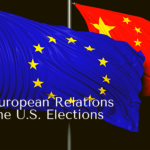 SPEAKERS CUI Hongjian 崔洪建, Director, Department for European Studies, China Institute of International Studies Plamen TONCHEV, Head of Asia Unit, Institute of International Economic Relations; European China Policy Fellow, Merics REPORT 2020 has been widely accredited as the turning point for the international order; in every continent…
SPEAKERS CUI Hongjian 崔洪建, Director, Department for European Studies, China Institute of International Studies Plamen TONCHEV, Head of Asia Unit, Institute of International Economic Relations; European China Policy Fellow, Merics REPORT 2020 has been widely accredited as the turning point for the international order; in every continent… - 60
Read more... -
16 Apr
Weekly News – April 10 – 16, 2021
Starting from this week, ThinkINchina team will be sharing weekly suggestions, to keep our followers updated with the latest news about China.
“Climate could still be an area for the powers to achieve a breakthrough.”- Lin Limin, University of International Relations in Beijing.
President Xi Jinping is likely to attend a two-day virtual Earth Day Summit on April 22-23, hosted by his US counterpart Joe Biden. Climate change seems to represent one area where the two powers can work together and find a way for cooperation, despite recent frictions.
How are the two nations engaged with Climate change?
– The US plans to commit to cutting their emissions by 50 percent or more of their 2005 levels by 2030.
– China pledged to bring carbon emissions to a peak before 2030 and to become carbon neutral by 2060.
Source: South China Morning Post
A new record fine on Alibaba could set the example on regulatory new course for tech giants in China
A record 12.8 billion yuan ($2.8B) fine has been inflicted by the State Administration for Market Regulation (SAMR) on Alibaba Group Holding, the world’s largest e-commerce company. The fine amounted to a staggering 4% of Alibaba’s 2019 revenues, but for the current Chinese antitrust legislation for such a misconduct the fine could reach up to 10% of the annual revenue.
Zhai Wei, executive director of the Competition Law Research Center at the East China University of Political Science and Law in Shanghai, said that this was a milestone that could “offer references in the future, as China has never had a case on how to define abuses of a dominant market position from the antitrust perspective”.
Source: The New York Times
Five years ago, Sun Wenlin made headlines with his same-sex wedding. Now, he’s advocating to legalize marriage for LGBT couples.
In 2015, Sun Wenlin and his partner Hu Mingliang filed a lawsuit to their local civil affairs bureau in provincial capital Changsha, Hunan, for refusing to register their marriage. The following year, this became the first same-sex marriage lawsuit case to be accepted by a Chinese court. Whilst it was a legal defeat, it otherwise defined Sun’s purpose in life: to change policies and perceptions surrounding same-sex marriage in China.
Sixth Tone recently interviewed the activist, inquiring him about the status of advocacy work for the legal recognition of same-sex relationships in China: “Considering how quickly people’s minds have changed toward same-sex marriage in the past years, I don’t think it will take as long as 20 years” to reach equality.
Source: Sixth Tone
Related Posts
- 60
 VACCINE DIPLOMACY Beijing offers to vaccinate Taiwan’s population after more than 200 new daily cases are found on the island. Taiwanese citizens could fly to China to take the vaccine, says the Taiwan Affairs Office, the main body for inter-strait relations. This could be a new chance for mainland…
VACCINE DIPLOMACY Beijing offers to vaccinate Taiwan’s population after more than 200 new daily cases are found on the island. Taiwanese citizens could fly to China to take the vaccine, says the Taiwan Affairs Office, the main body for inter-strait relations. This could be a new chance for mainland… - 60100th ANNIVERSARY OF THE CCP The Chinese Communist Party is celebrating its 100th anniversary. The first of July marked the 100th anniversary of the Chinese Communist Party (CCP), which was founded in Shanghai back in 1921. Despite initial years of war, first against the Japanese then against the…
Read more... -
22 Feb
#78 – Event report – China in the Middle East: Sino-Israeli Relations
SPEAKERS
SHE Gangzheng 佘纲正, Assistant Professor, Department of International Relations, Tsinghua University
Brandon FRIEDMAN, Director of Research, the Moshe Dayan Center for Middle Eastern and African Studies, Tel Aviv University
FULL VIDEO on YouTube
REPORT
China and Israel share an extended and fascinating history of interaction. During the early Cold War period, Israel was the first country in the Middle East to recognize the PRC. In the later years of the Cold War epoch, unofficial ties between the two countries began with technological transfers, particularly in the military field, from Israel to China. Subsequently, their relationship gradually expanded to free trade in the civil sector, and in 1992 the two countries finally established formal diplomatic relations. Over the last decade, China and Israel’s economies have become increasingly interconnected despite the US influence slowing down this development. The infamous US-China trade war has had indirect effects on Israel, creating frictions in the Sino-Israeli relations. Nonetheless, on a geopolitical scale, Israel has sought to maintain close business relations with China, and in return, China has increasingly acknowledged Israel’s regional interests during the expansion of Beijing’s influence over the Middle East. What are some of the major challenges and novel opportunities ahead when discussing the future of Sino-Israeli relations?
According to She Gangzheng, Assistant Professor at the Department of International Relations at Tsinghua University in Beijing, China’s main focus is to invest in Israel’s civil sector, in particular in the infrastructure and labor service domains, as well as in the high-tech sector. As for cooperation in military technology, Professor She believes that it was once one of the most important components of their relationship – as shown in the creation of mutual trusts during the last phase of the Cold War, as well as in the first decade after the establishment of formal relations, but for now and in the foreseeable future China understands that it lacks room for military cooperation and technology transfers due to strong US scrutiny and US pressure on Israel.
Analyzing the broader Chinese foreign policy in the Middle East, Professor She affirms that, for Beijing, the Middle East remains crucial today for three predominant reasons: the supply of resources, not only the traditional energetic ones but in particular the technological ones today; its market access for Chinese infrastructures’ constructions and digital projects, such as the rollout of 5G technology; and finally, its geostrategic position as an important gateway to Europe and Africa, both of which are of paramount importance in executing the Chinese project of the Belt and Road Initiative.
One of the biggest challenges to China’s Middle East policy, however, remains locked in the regional tensions, both domestic and interstate; therefore, we wee in China a leadership that is careful not to get too deeply involved in undesirable diplomatic complications. Whilst initially this appeared to pose a marginal issue for China, with the combination of time and reality, this proposal is being increasingly challenged. Against a backdrop of mistrust between China and the U.S. – the architect of the security in the region – alongside interregional dynamics, this is an area that Beijing is struggling to navigate. China needs to be more aware of how to move around in the region. Similarly, China had a clear agenda to carry forward when building stronger relationships with countries in southern Europe, like Spain, France, and Italy. While Beijing has the potential and the tendency to do so in the rest of the area, it has not yet formulated a holistic plan for interacting with the wider Mediterranean region as a whole.
But what role does American influence play in Chinese foreign policy in the region? And how 2021 will look like in Sino-Israeli political and economic relations with the new Biden-led U.S. administration now in charge?
Washington has long pressured Israel to stop cooperation with China in several ways and has taken actions to discourage the involvement of other key countries in the BRI. Professor She provides a list of at least five domains of future competition in the Middle East between China and the U.S.: the access to strategically important areas; the security and military sales; the high-tech sector; and, last but not least, soft power in the region. President Biden is still trying to formulate a policy to be adopted in the region, but Professor She is cautiously optimistic about future Sino-American opportunities of cooperation in the region.
As reported by Brandon Friedman, Director of Research at the Moshe Dayan Center for Middle Eastern and African Studies at Tel Aviv University, an extraordinary relationship rooted in historical and strategic variables binds the U.S. and Israel. In 1985, Israel was the first country that enjoyed a Free Trade Agreement with the U.S., which quickly became Israel’s larger trading partner. Their diplomatic cooperation in peacemaking is particularly notorious: the U.S. played a vital role in Israel’s peace process with Egypt and Jordan and in establishing their economic ties, as well as trade with Turkey. Israel attempted to make with Palestine in 1999 and most recently there were Israeli normalization agreements with Sudan, Morocco, and the United Arab Emirates. The U.S. also was a key ally in diplomacy confronting Iran. In 2016 the U.S. has finalized a $38 billion package of military aid for Israel for the next 10 years and it accounts for 20% of Israel’s defense budget alongside nearly the entire Israel’s defense procurement budget.
Despite this, Sino-Israeli economic relations are becoming increasingly more important. In 2018, Israel imported more from China than from the U.S. China is particularly interested in investing in Israel’s high-tech sector, transportation infrastructure, and emerging technology.
A “New Cold War” remains a looming prognosis for the US-Sino relationship, but can Cold War rhetoric still work applied to Sino-American rivalry in the Middle East? According to Professor Friedman, this historical analogy does not apply appropriately, particularly when it comes to Sino-American rivalry in the Middle East, and especially in Israel, there are great differences that simply contradict this analytical lens.
To give some examples, Israel is now far more dependant on the U.S. than it was during the Cold War, but at the same time, their relationship has changed considerably. The regional situation in the Middle East is now also different: if during the Cold War Israel faced primarily regional and domestic concerns, today’s relations between Israel and some countries as Sudan and Morocco have been better normalized. And finally, today Israel’s economy is much more integrated into the world economy and increasingly linked to the Chinese one.
Drawing parallels from the Cold War period, Professor Friedman notes that divisional competition could take place in the field of high technology, with the Middle East divided between two different spheres of technological influence. In addition to emerging technology – like artificial intelligence, machine learning, cyber offense, and cyber defense, big data analytics, quantum encryption, etc. -, the search for strategic stability and nuclear stability (sea-based nuclear deterrents which potentially has ramifications and implications for the Mediterranean and the Red Sea) could be the second competition area.
When it comes to Israel, Professor Friedman believes that Sino-American rivalry and a Cold War dynamic will probably play a secondary role in Israel’s strategic perception and in its political behavior on the international regional, and domestic politics level. Moreover, during the Cold War Israel’s own interests were focused on state-building, state security, and regional security situation.
However, in conjunction with American pressure, in particular, under the Trump administration, Israel’s security concerns have increasingly emerged, related to the possibility that Israeli technology could find its way into the hands of state adversaries, or that Chinese growing involvement in Israel’s economy might make it possible for China to influence Israel’s domestic decision making. Some acquisitions in Israel by Chinese companies such as Alibaba and Huawei, alongside Chinese involvement in key infrastructures – such as the new terminal of Haifa port, have raised the possibility that Israel needs a mechanism to strictly regulate foreign investments in the country, especially in light of the rapidly growing investments coming from China. According to Professor Friedman, the key question today is whether Israel will be able to make autonomous political decisions for handling Chinese investments and whether it will be able to keep up the pace of business on the ground.
As for the most important variable that implicates Sino-Israeli relations, Prof. Friedman’s assessment is that this roots down to the position and influence of the U.S. in the region. This is a result of Israel’s “special relationship” with the United States, despite Israeli efforts to defend its autonomy in managing its national affairs.
In conclusion, the Sino-American rivalry will have a great impact on the future of the Middle East. So, where should we pay attention to? In the last decade, uncertainty has guided American politics: should the U.S. scale back its commitment to the Middle East or focus its political, diplomatic, and military resources more in the Asia-Pacific region? The heated debate suggests that the Middle East has somehow been downgraded in the eyes of American policymakers. Nowadays, the Biden administration aspires to give priority to Asia in its foreign policy initiatives, thereby reducing America’s military presence in the Middle East. The diminishing U.S. commitment could leave greater room for China to engage at a deeper level in the region. Observing how the priorities of the United States will evolve and especially how Sino-American relations will stabilize will be fundamental to understand the future of Sino-Israeli relations.
Report written by Simona Taravella and edited by Natasha Lock.
Related Posts
- 10000
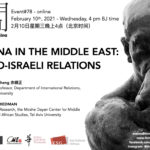 SPEAKERS SHE Gangzheng 佘纲正, Assistant Professor, Department of International Relations, Tsinghua University Brandon FRIEDMAN, Director of Research, the Moshe Dayan Center for Middle Eastern and African Studies, Tel Aviv University ABSTRACT Chinese investments in Israel have grown significantly in recent years, especially in the fields of software,…
SPEAKERS SHE Gangzheng 佘纲正, Assistant Professor, Department of International Relations, Tsinghua University Brandon FRIEDMAN, Director of Research, the Moshe Dayan Center for Middle Eastern and African Studies, Tel Aviv University ABSTRACT Chinese investments in Israel have grown significantly in recent years, especially in the fields of software,… - 10000
 SHE Gangzheng 佘纲正, Assistant Professor, Department of International Relations, Tsinghua University Dr She Gangzheng is an Assistant Professor at the Department of International Relations at Tsinghua University in Beijing. He received a BA in Hebrew Language and Culture from Peking University and a Ph.D. in Near Eastern and…
SHE Gangzheng 佘纲正, Assistant Professor, Department of International Relations, Tsinghua University Dr She Gangzheng is an Assistant Professor at the Department of International Relations at Tsinghua University in Beijing. He received a BA in Hebrew Language and Culture from Peking University and a Ph.D. in Near Eastern and… - 10000
 Brandon FRIEDMAN, Director of Research, the Moshe Dayan Center for Middle Eastern and African Studies, Tel Aviv University. Dr Brandon Friedman is the Director of Research at the Moshe Dayan Center for Middle Eastern and African Studies at Tel Aviv University and the managing editor of the Center's…
Brandon FRIEDMAN, Director of Research, the Moshe Dayan Center for Middle Eastern and African Studies, Tel Aviv University. Dr Brandon Friedman is the Director of Research at the Moshe Dayan Center for Middle Eastern and African Studies at Tel Aviv University and the managing editor of the Center's… - 10000
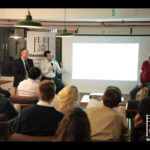 SPEAKERS Juan COLE, Richard P.Mitchell Collegiate Professor of History, University of Michigan Mohsen SHARIATINIA, Assistant Professor, Shahdid Beheshti National University of Iran Tugrul KESKIN, Professor and Director, Center for Global Governance, Institute of Global Studies, Shanghai University VIDEO INTERVIEW (on YouTube) REPORT American…
SPEAKERS Juan COLE, Richard P.Mitchell Collegiate Professor of History, University of Michigan Mohsen SHARIATINIA, Assistant Professor, Shahdid Beheshti National University of Iran Tugrul KESKIN, Professor and Director, Center for Global Governance, Institute of Global Studies, Shanghai University VIDEO INTERVIEW (on YouTube) REPORT American… - 10000SPEAKERS NIU Xinchun 牛新春, Research Professor, Director of Institute of Middle East Studies, China Institute of Contemporary International Relations (CICIR) Tugrul KESKIN, Professor and Director, Center for Global Governance, Institute of Global Studies, Shanghai University REPORT According to prof. Keskin, with the economic development derived from the…
- 10000Speakers: Yahia H. Zoubir, Professor of International Relations & International Management, Director of Research in Geopolitics, Kedge Business School >>Read more... Gong Zheng 龚正, Assistant Researcher, China Institutes of Contemporary International Relations >>Read more... VIDEO: Prof. Zoubir speaks passionatly post-event on the current trajectory of North Africa In the evening…
Read more... -
22 Feb
#77 – Event report – Sino-European Relations after the U.S. Elections
SPEAKERS
CUI Hongjian 崔洪建, Director, Department for European Studies, China Institute of International Studies
Plamen TONCHEV, Head of Asia Unit, Institute of International Economic Relations; European China Policy Fellow, Merics
REPORT
2020 has been widely accredited as the turning point for the international order; in every continent and within every country it has presented change and challenge that have spurred tectonic shifts incomparable to anything before in our lifetimes. The outbreak of the Covid-19 pandemic and the US presidential election are two of many major events that will affect global relations over the coming years. What will be the implications of these events for Sino-European relations? This is the major issue that professor Cui Hongjian – Director of the Department for European Studies at the China Institute of International Studies in Beijing – and professor Plamen Tonchev – Head of Asia Unit at the Athens-based Institute of International Economic Relations and European China Policy fellow at Merics – attempted to address in their TIC discussion on December 3rd, 2020.
China’s image in Europe has deteriorated over the past year. Indeed, even though a major theme in Sino-European relations has recently consisted in mutual support for containing Covid-19, a “battle of narratives” has arisen – to quote Josep Borrell, High Representative of the Union for Foreign Affairs and Security Policy. According to this rationale, China has been pursuing a so-called “mask diplomacy”, exploiting knowledge-sharing against Covid-19 and shipping medical equipment all over the world for its own political and diplomatic purposes.
According to Cui, Sino-European economic cooperation will certainly undergo major changes. In his view, trends towards regional economic partnerships will prevail both for China – with ASEAN neighbors – and for Europe. This proposes to configure a long-term trend, since trade and industrial sectors have witnessed a dislocation of supply chains either at home or towards closed countries. Nonetheless, professor Cui observes that China possesses a clear conception to develop strong relations with the EU, and being this latter regarded as a strategic partner – rather than a merely economic one – supports this assumption. On the other side, the EU defines its relations with Beijing as characterized by both cooperation and competition.
The new American administration is expected to be more consistent and predictable than under Donald Trump’s presidency. It is feasible for the common ground between the U.S. and EU to expand under Biden administration, and this is likely to consequently affect EU-China relations.
During the next few years, Cui foresees a slight shift in American foreign policy towards China, which will give rise to political struggles and ideological confrontations. Concerning economic and global affairs, he expects enhanced cooperation and de-escalation of economic competition. In his view, the risk of decoupling for China-U.S. economic relations will keep diminishing, providing the EU with wider space for stable economic cooperation with China. With regard to the geopolitical and security challenges, Asia and the Pacific region surrounding China represent a huge opportunity for the EU, unless the latter performs in a constructive way, outside of a “US-led alliance”, he asserted.
According to Tonchev, America’s “China policy” is likely to become more sophisticated and multidimensional, based on containment and selective decoupling, and with strong elements of cooperation. He expects a broadening of western alliances amid the US-China stand-off, given that Biden is considered to be a long-standing supporter of transatlantic relations. As a result, we can assume that his administration is likely to restore transatlantic relations, bring the country back to the Paris Agreement, reaffirm Washington’s support for NATO, resolve trade disputes with the EU, and re-engage America into international organizations. Nonetheless, this remains an area that will impact EU-China relations, as Beijing will continue to be viewed by the US as a “threat to the current international order” inside these bodies, as declared by the US-China Economic and Security Review Commission.
Analyzing EU-China relations, Tonchev has identified four key areas likely to be affected by Biden’s election. Regarding trade and investments, the EU and China will remain economic partners, though this area will not be free of disputes and controversies. It will be useful to watch the progress on the Comprehensive Agreement on Investments (CAI) or the Bilateral Investment Treaty (BIT, as Beijing prefers to refer to it). According to the speaker, we will witness both diversification and assertiveness from the EU in its negotiations with China.
With regard to climate change, he observes that notwithstanding China’s recently announced commitment to achieving carbon neutrality by 2060, the EU remains cautious for two main reasons. First, this timeline does not seem to demonstrate a sense of urgency about combating climate change, and an acceleration towards China’s carbon-neutrality would be desirable. Secondly, Chinese authorities are expected to address pollution both domestically and along BRI routes abroad. Climate change is where we foresee the most positive prospects in EU-China relations, Tonchev argues. Since the U.S. is expected to return to the negotiating table, there will be plenty of room for strategic cooperation on a global scale, including with China.
Geopolitics remains an area of confrontation between China and the West, though the EU does not support the idea of a new Cold War and acknowledges that China has a role to play in mitigating certain regional conflicts. However, in terms of governance and core political values, the EU will always be closer to the U.S. than to China and this domain is likely to be characterized by growing tensions.
Report written by David Morabito and edited by Natasha Lock.
Related Posts
- 10000
 SPEAKERS CUI Hongjian 崔洪建, Director, Department for European Studies, China Institute of International Studies Plamen TONCHEV, Head of Asia Unit, Institute of International Economic Relations; European China Policy Fellow, Merics ThinkINchina is back with a series of online events creating opportunities for dialogues between Chinese and international experts.…
SPEAKERS CUI Hongjian 崔洪建, Director, Department for European Studies, China Institute of International Studies Plamen TONCHEV, Head of Asia Unit, Institute of International Economic Relations; European China Policy Fellow, Merics ThinkINchina is back with a series of online events creating opportunities for dialogues between Chinese and international experts.… - 10000
 CUI Hongjian 崔洪建, Director, Department for European Studies, China Institute of International Studies Cui Hongjian holds a Ph.d in law from Peking University. He joined China Institute of International Studies in 1998 and has previously served as the director and first secretary of the Political Office. He is…
CUI Hongjian 崔洪建, Director, Department for European Studies, China Institute of International Studies Cui Hongjian holds a Ph.d in law from Peking University. He joined China Institute of International Studies in 1998 and has previously served as the director and first secretary of the Political Office. He is… - 10000
 Plamen TONCHEV, Head of Asia Unit, Institute of International Economic Relations Plamen Tonchev is Head of Asia Unit at the Athens-based Institute of International Economic Relations (IIER) and currently a European China Policy Fellow at Merics, in Berlin. He is the founding member of the European Think-thank Network…
Plamen TONCHEV, Head of Asia Unit, Institute of International Economic Relations Plamen Tonchev is Head of Asia Unit at the Athens-based Institute of International Economic Relations (IIER) and currently a European China Policy Fellow at Merics, in Berlin. He is the founding member of the European Think-thank Network… - 70
- 67
 HUANG Yanzhong, Senior Fellow for Global Health, Council on Foreign Relations; Director of Global Health Studies, Seton Hall University's School of Diplomacy and International Relations. Huang Yanzhong is a senior fellow for global health at the Council on Foreign Relations, where he directs the Global Health Governance roundtable…
HUANG Yanzhong, Senior Fellow for Global Health, Council on Foreign Relations; Director of Global Health Studies, Seton Hall University's School of Diplomacy and International Relations. Huang Yanzhong is a senior fellow for global health at the Council on Foreign Relations, where he directs the Global Health Governance roundtable… - 65
 SHE Gangzheng 佘纲正, Assistant Professor, Department of International Relations, Tsinghua University Dr She Gangzheng is an Assistant Professor at the Department of International Relations at Tsinghua University in Beijing. He received a BA in Hebrew Language and Culture from Peking University and a Ph.D. in Near Eastern and…
SHE Gangzheng 佘纲正, Assistant Professor, Department of International Relations, Tsinghua University Dr She Gangzheng is an Assistant Professor at the Department of International Relations at Tsinghua University in Beijing. He received a BA in Hebrew Language and Culture from Peking University and a Ph.D. in Near Eastern and… - 62
- 62
 U.S. will remove Xiaomi from the government blacklist. The removal means that the Chinese company can revive its relations with American investors. After the news, Xiaomi’s shares skyrocketed 6% in Hong Kong. The investments in the company were blocked under the Trump administration. The U.S. Department of Defence…
U.S. will remove Xiaomi from the government blacklist. The removal means that the Chinese company can revive its relations with American investors. After the news, Xiaomi’s shares skyrocketed 6% in Hong Kong. The investments in the company were blocked under the Trump administration. The U.S. Department of Defence…
Read more... -
04 Feb
SHE Gangzheng
SHE Gangzheng 佘纲正, Assistant Professor, Department of International Relations, Tsinghua University
Dr She Gangzheng is an Assistant Professor at the Department of International Relations at Tsinghua University in Beijing. He received a BA in Hebrew Language and Culture from Peking University and a Ph.D. in Near Eastern and Judaic Studies from Brandeis University (Boston, U.S.), where he wrote his doctoral dissertation built on extensive archival research focused on China’s involvement in the Arab-Israeli conflict during the Cold War. He was the recipient of fellowships from the Schusterman Center for Israeli Studies, the Israel Institute, and the Josephine De Karman Fellowship Trust. His research focuses on the intersection of the Middle East and diplomatic history.
Related Posts
- 10000
 SPEAKERS SHE Gangzheng 佘纲正, Assistant Professor, Department of International Relations, Tsinghua University Brandon FRIEDMAN, Director of Research, the Moshe Dayan Center for Middle Eastern and African Studies, Tel Aviv University ABSTRACT Chinese investments in Israel have grown significantly in recent years, especially in the fields of software,…
SPEAKERS SHE Gangzheng 佘纲正, Assistant Professor, Department of International Relations, Tsinghua University Brandon FRIEDMAN, Director of Research, the Moshe Dayan Center for Middle Eastern and African Studies, Tel Aviv University ABSTRACT Chinese investments in Israel have grown significantly in recent years, especially in the fields of software,… - 91
 CUI Hongjian 崔洪建, Director, Department for European Studies, China Institute of International Studies Cui Hongjian holds a Ph.d in law from Peking University. He joined China Institute of International Studies in 1998 and has previously served as the director and first secretary of the Political Office. He is…
CUI Hongjian 崔洪建, Director, Department for European Studies, China Institute of International Studies Cui Hongjian holds a Ph.d in law from Peking University. He joined China Institute of International Studies in 1998 and has previously served as the director and first secretary of the Political Office. He is… - 88
 HUANG Yanzhong, Senior Fellow for Global Health, Council on Foreign Relations; Director of Global Health Studies, Seton Hall University's School of Diplomacy and International Relations. Huang Yanzhong is a senior fellow for global health at the Council on Foreign Relations, where he directs the Global Health Governance roundtable…
HUANG Yanzhong, Senior Fellow for Global Health, Council on Foreign Relations; Director of Global Health Studies, Seton Hall University's School of Diplomacy and International Relations. Huang Yanzhong is a senior fellow for global health at the Council on Foreign Relations, where he directs the Global Health Governance roundtable… - 87
 Plamen TONCHEV, Head of Asia Unit, Institute of International Economic Relations Plamen Tonchev is Head of Asia Unit at the Athens-based Institute of International Economic Relations (IIER) and currently a European China Policy Fellow at Merics, in Berlin. He is the founding member of the European Think-thank Network…
Plamen TONCHEV, Head of Asia Unit, Institute of International Economic Relations Plamen Tonchev is Head of Asia Unit at the Athens-based Institute of International Economic Relations (IIER) and currently a European China Policy Fellow at Merics, in Berlin. He is the founding member of the European Think-thank Network… - 76Prof. WANG Jisi 王缉思 Former Dean, Professor, School of International Studies, Peking University Director, Center for International and Strategic Studies, Peking University Professor WANG Jisi is the former dean of the School of International Studies, Peking University, and director of the Center for International and Strategic Studies, Peking University. He has…
- 75Prof. Dr. PAN Wei 潘维 Director, Center for Chinese & Global Affairs, School of International Studies, Peking University Prof. PAN is professor at the School of International Studies at Peking University and the Director of Center for Chinese & Global Affairs at SISS. He has a bachelor’s and master’s degrees in international…
- 74Prof. Dr. WEN Tiejun 温铁军 Executive Dean, Institute of Advanced Studies for Sustainability, Renmin University of China Executive Dean, Institute of Rural Reconstruction of China, Southwestern University of China Tiejun WEN is a renowned expert on social-economic sustainable development and rural issues, especially in policy studies, macro-economic, geo-strategy of…
- 71Prof. WANG Yizhou 王逸舟 Deputy Dean of the School of International Studies, Peking University Prof. WANG Yizhou 王逸舟, is Professor of international Politics and Chinese Foreign Affairs and Associate Dean in the School of International Studies (SIS), Peking University, since late 2009. He has been the Chief editor of the…
- 66
- 65
 SPEAKERS CUI Hongjian 崔洪建, Director, Department for European Studies, China Institute of International Studies Plamen TONCHEV, Head of Asia Unit, Institute of International Economic Relations; European China Policy Fellow, Merics REPORT 2020 has been widely accredited as the turning point for the international order; in every continent…
SPEAKERS CUI Hongjian 崔洪建, Director, Department for European Studies, China Institute of International Studies Plamen TONCHEV, Head of Asia Unit, Institute of International Economic Relations; European China Policy Fellow, Merics REPORT 2020 has been widely accredited as the turning point for the international order; in every continent…
Read more... -
04 Feb
Brandon FRIEDMAN
Brandon FRIEDMAN, Director of Research, the Moshe Dayan Center for Middle Eastern and African Studies, Tel Aviv University.
Dr Brandon Friedman is the Director of Research at the Moshe Dayan Center for Middle Eastern and African Studies at Tel Aviv University and the managing editor of the Center’s journal Bustan: The Middle East Book Review. His research during the past few years has focused on three primary areas. First, he continues to investigate the social origins of political reform in Saudi Arabia, in historical perspective. He has also written about regional politics since the Arab Spring, focusing on identifying the social and political processes driving the breakdown of the state order across the region, with a particular emphasis on the Saudi perception of developments in Iraq and Syria. Third, in line with a new research program, he has been working on with the Department of East Asian Studies of Tel Aviv Universit, researching China’s increasing engagement in the Middle East since the early 1990s. Professor Friedman’s doctora research focused on the political relations between the rulers of the Persian Gulf littoral during the period of British military withdrawal from the region (1968 to 1971). He reads Arabic and Persian.
Dr Friedman’s publications are available here.
Read more... -
04 Feb
#78 – China in the Middle East: Sino-Israeli Relations
SPEAKERS
SHE Gangzheng 佘纲正, Assistant Professor, Department of International Relations, Tsinghua University
Brandon FRIEDMAN, Director of Research, the Moshe Dayan Center for Middle Eastern and African Studies, Tel Aviv University
ABSTRACT
Chinese investments in Israel have grown significantly in recent years, especially in the fields of software, IT services, and electronics. According to 2018 data from the World Bank, Israel imports the majority of goods from China ($ 10.4 billion), with the U.S. a close second ($10.2 billion). Moreover, China is the second biggest destination for Israeli exports ($4.8 billion), with the U.S. leading by a large margin ($16.8 billion).
Israel is not only an important economic and trade partner of China in the Middle East, but also a key element of China’s current strategy to promote the Belt and Road Initiative. China’s strategic interest is based on the fact that Israel is one of the world’s foremost commercial, food and security powerhouses and it enjoys significant grassroots support in the U.S. This relation has attracted increasing scrutiny and pressure from Washington, eager to limit Israeli engagement with China in its strategic sectors, as artificial intelligence, machine learning, cybersecurity, and infrastructures, especially because an FDI screening mechanism just began to be implemented by Israel but has not satisfied to American ally so far.
Within China’s strategy in the wider Mediterranean region, what are the challenges and opportunities lying ahead when discussing about Sino-Israeli relations? And will the new Biden-led U.S. administration change the course of its relations? Join us for a new ThinkINchina online talk, where professor She Gangzheng from Tsinghua University and professor Brandon Friedman from Tel Aviv University, guided by professor Andrea Ghiselli from Fudan University, will help us understand what 2021 will look like in Sino-Israeli political and economic relations.
The talk will be organized online, you can REGISTER HERE ON EVENTBRITE and the day before the event you’ll receive the link to join the conversation on Wednesday, February 10th, 4 pm Beijing time.
Related Posts
- 10000
 SHE Gangzheng 佘纲正, Assistant Professor, Department of International Relations, Tsinghua University Dr She Gangzheng is an Assistant Professor at the Department of International Relations at Tsinghua University in Beijing. He received a BA in Hebrew Language and Culture from Peking University and a Ph.D. in Near Eastern and…
SHE Gangzheng 佘纲正, Assistant Professor, Department of International Relations, Tsinghua University Dr She Gangzheng is an Assistant Professor at the Department of International Relations at Tsinghua University in Beijing. He received a BA in Hebrew Language and Culture from Peking University and a Ph.D. in Near Eastern and… - 10000
 Brandon FRIEDMAN, Director of Research, the Moshe Dayan Center for Middle Eastern and African Studies, Tel Aviv University. Dr Brandon Friedman is the Director of Research at the Moshe Dayan Center for Middle Eastern and African Studies at Tel Aviv University and the managing editor of the Center's…
Brandon FRIEDMAN, Director of Research, the Moshe Dayan Center for Middle Eastern and African Studies, Tel Aviv University. Dr Brandon Friedman is the Director of Research at the Moshe Dayan Center for Middle Eastern and African Studies at Tel Aviv University and the managing editor of the Center's…
Read more... -
23 Dec
CUI Hongjian
CUI Hongjian 崔洪建, Director, Department for European Studies, China Institute of International Studies
Cui Hongjian holds a Ph.d in law from Peking University. He joined China Institute of International Studies in 1998 and has previously served as the director and first secretary of the Political Office. He is currently the director and researcher of the Department for European Studies at CIIS. Cui also serves as director at the Chinese Association for European Studies, as executive director of the Center for European Studies of China Foundation for International Studies, and as director at the China Economic and Social Council. Cui has long been engaged in researches in international relations, European affairs, and Chinese diplomacy.
Related Posts
- 10000
 SPEAKERS CUI Hongjian 崔洪建, Director, Department for European Studies, China Institute of International Studies Plamen TONCHEV, Head of Asia Unit, Institute of International Economic Relations; European China Policy Fellow, Merics ThinkINchina is back with a series of online events creating opportunities for dialogues between Chinese and international experts.…
SPEAKERS CUI Hongjian 崔洪建, Director, Department for European Studies, China Institute of International Studies Plamen TONCHEV, Head of Asia Unit, Institute of International Economic Relations; European China Policy Fellow, Merics ThinkINchina is back with a series of online events creating opportunities for dialogues between Chinese and international experts.… - 92
 Plamen TONCHEV, Head of Asia Unit, Institute of International Economic Relations Plamen Tonchev is Head of Asia Unit at the Athens-based Institute of International Economic Relations (IIER) and currently a European China Policy Fellow at Merics, in Berlin. He is the founding member of the European Think-thank Network…
Plamen TONCHEV, Head of Asia Unit, Institute of International Economic Relations Plamen Tonchev is Head of Asia Unit at the Athens-based Institute of International Economic Relations (IIER) and currently a European China Policy Fellow at Merics, in Berlin. He is the founding member of the European Think-thank Network… - 91
 SHE Gangzheng 佘纲正, Assistant Professor, Department of International Relations, Tsinghua University Dr She Gangzheng is an Assistant Professor at the Department of International Relations at Tsinghua University in Beijing. He received a BA in Hebrew Language and Culture from Peking University and a Ph.D. in Near Eastern and…
SHE Gangzheng 佘纲正, Assistant Professor, Department of International Relations, Tsinghua University Dr She Gangzheng is an Assistant Professor at the Department of International Relations at Tsinghua University in Beijing. He received a BA in Hebrew Language and Culture from Peking University and a Ph.D. in Near Eastern and… - 90
 HUANG Yanzhong, Senior Fellow for Global Health, Council on Foreign Relations; Director of Global Health Studies, Seton Hall University's School of Diplomacy and International Relations. Huang Yanzhong is a senior fellow for global health at the Council on Foreign Relations, where he directs the Global Health Governance roundtable…
HUANG Yanzhong, Senior Fellow for Global Health, Council on Foreign Relations; Director of Global Health Studies, Seton Hall University's School of Diplomacy and International Relations. Huang Yanzhong is a senior fellow for global health at the Council on Foreign Relations, where he directs the Global Health Governance roundtable… - 79Prof. WANG Jisi 王缉思 Former Dean, Professor, School of International Studies, Peking University Director, Center for International and Strategic Studies, Peking University Professor WANG Jisi is the former dean of the School of International Studies, Peking University, and director of the Center for International and Strategic Studies, Peking University. He has…
- 78Prof. Dr. PAN Wei 潘维 Director, Center for Chinese & Global Affairs, School of International Studies, Peking University Prof. PAN is professor at the School of International Studies at Peking University and the Director of Center for Chinese & Global Affairs at SISS. He has a bachelor’s and master’s degrees in international…
- 78Prof. Dr. WEN Tiejun 温铁军 Executive Dean, Institute of Advanced Studies for Sustainability, Renmin University of China Executive Dean, Institute of Rural Reconstruction of China, Southwestern University of China Tiejun WEN is a renowned expert on social-economic sustainable development and rural issues, especially in policy studies, macro-economic, geo-strategy of…
- 74Prof. WANG Yizhou 王逸舟 Deputy Dean of the School of International Studies, Peking University Prof. WANG Yizhou 王逸舟, is Professor of international Politics and Chinese Foreign Affairs and Associate Dean in the School of International Studies (SIS), Peking University, since late 2009. He has been the Chief editor of the…
- 72
- 69
 SPEAKERS CUI Hongjian 崔洪建, Director, Department for European Studies, China Institute of International Studies Plamen TONCHEV, Head of Asia Unit, Institute of International Economic Relations; European China Policy Fellow, Merics REPORT 2020 has been widely accredited as the turning point for the international order; in every continent…
SPEAKERS CUI Hongjian 崔洪建, Director, Department for European Studies, China Institute of International Studies Plamen TONCHEV, Head of Asia Unit, Institute of International Economic Relations; European China Policy Fellow, Merics REPORT 2020 has been widely accredited as the turning point for the international order; in every continent…
Read more... -
22 Dec
#77 – Sino-European Relations after the U.S. Elections
SPEAKERS
CUI Hongjian 崔洪建, Director, Department for European Studies, China Institute of International Studies
Plamen TONCHEV, Head of Asia Unit, Institute of International Economic Relations; European China Policy Fellow, Merics
ThinkINchina is back with a series of online events creating opportunities for dialogues between Chinese and international experts. For the first talk we decided to discuss about the status of Sino-European relations in this very hectic 2020, with a particular focus on the effects of the U.S. elections of last November. Will a Biden administration change Washington’s stance towards China? And how will this affect Beijing’s relations with its European partners? Are we going to see an Atlantic reapprochment? Are we at the final stage of negotiating the new EU-China Comprehensive Agreement on Investment?
Learn this and much more by watching TIC event#77 with professor Cui Hongjian, from CIIS, and professor Plamen Tonchev, from the Institute of International Economic Relations. The dialogue has been recorded on December 4th, 2020, be sure to turn on your VPN since the videos have been uploaded on our YouTube channel.
Cui Hongjian’s presentation about Sino-European relations in 2020 and Beijing’s perspective:
Plamen Tonchev’s presentation on the key areas of cooperation and competition between China and Europe:
Q&A session, focusing on Sino-European cooperation on climate change, expectations after Italy’s 2019 signing of the BRI MoU and how China is perceiving European countries’ projects in the Indo-Pacific region:
Related Posts
- 10000
 SPEAKERS CUI Hongjian 崔洪建, Director, Department for European Studies, China Institute of International Studies Plamen TONCHEV, Head of Asia Unit, Institute of International Economic Relations; European China Policy Fellow, Merics REPORT 2020 has been widely accredited as the turning point for the international order; in every continent…
SPEAKERS CUI Hongjian 崔洪建, Director, Department for European Studies, China Institute of International Studies Plamen TONCHEV, Head of Asia Unit, Institute of International Economic Relations; European China Policy Fellow, Merics REPORT 2020 has been widely accredited as the turning point for the international order; in every continent… - 10000
 CUI Hongjian 崔洪建, Director, Department for European Studies, China Institute of International Studies Cui Hongjian holds a Ph.d in law from Peking University. He joined China Institute of International Studies in 1998 and has previously served as the director and first secretary of the Political Office. He is…
CUI Hongjian 崔洪建, Director, Department for European Studies, China Institute of International Studies Cui Hongjian holds a Ph.d in law from Peking University. He joined China Institute of International Studies in 1998 and has previously served as the director and first secretary of the Political Office. He is… - 10000
 Plamen TONCHEV, Head of Asia Unit, Institute of International Economic Relations Plamen Tonchev is Head of Asia Unit at the Athens-based Institute of International Economic Relations (IIER) and currently a European China Policy Fellow at Merics, in Berlin. He is the founding member of the European Think-thank Network…
Plamen TONCHEV, Head of Asia Unit, Institute of International Economic Relations Plamen Tonchev is Head of Asia Unit at the Athens-based Institute of International Economic Relations (IIER) and currently a European China Policy Fellow at Merics, in Berlin. He is the founding member of the European Think-thank Network… - 71
 SPEAKER WANG Yao 王遥 Director General, International Institute of Green Finance, Central University of Finance and Economics ABSTRACT In the last few years, green finance has emerged as a popular topic of discussion among legislators across the world, who seek to innovate the way they tackle environmental issues.…
SPEAKER WANG Yao 王遥 Director General, International Institute of Green Finance, Central University of Finance and Economics ABSTRACT In the last few years, green finance has emerged as a popular topic of discussion among legislators across the world, who seek to innovate the way they tackle environmental issues.… - 68
 SPEAKER Mary Evelyn TUCKER, Senior Lecturer and Senior Researcher, Yale University; Director, Yale Forum on Religion and Ecology DISCUSSANT WU Ruihan 吴蕊寒, PhD candidate, Department of Philosophy, Peking University ABSTRACT As our ecological challenges begin to multiply around the planet, we are seeking solutions beyond science…
SPEAKER Mary Evelyn TUCKER, Senior Lecturer and Senior Researcher, Yale University; Director, Yale Forum on Religion and Ecology DISCUSSANT WU Ruihan 吴蕊寒, PhD candidate, Department of Philosophy, Peking University ABSTRACT As our ecological challenges begin to multiply around the planet, we are seeking solutions beyond science…
Read more... -
22 Dec
Plamen TONCHEV
Plamen TONCHEV, Head of Asia Unit, Institute of International Economic Relations
Plamen Tonchev is Head of Asia Unit at the Athens-based Institute of International Economic Relations (IIER) and currently a European China Policy Fellow at Merics, in Berlin. He is the founding member of the European Think-thank Network on China (ETNC) and a member of the EU Chapter of the Council for Security Cooperation in the Asia Pacific Committee (EU CSCAP). Tonchev has specialised in Chinese studies since the late 1999s and has published extensively in this area. His research interests cover both China’s politics and economy and its standing in the international scene, the Belt and Road Initiative (BRI) and EU-China relations.
Related Posts
- 10000
 SPEAKERS CUI Hongjian 崔洪建, Director, Department for European Studies, China Institute of International Studies Plamen TONCHEV, Head of Asia Unit, Institute of International Economic Relations; European China Policy Fellow, Merics ThinkINchina is back with a series of online events creating opportunities for dialogues between Chinese and international experts.…
SPEAKERS CUI Hongjian 崔洪建, Director, Department for European Studies, China Institute of International Studies Plamen TONCHEV, Head of Asia Unit, Institute of International Economic Relations; European China Policy Fellow, Merics ThinkINchina is back with a series of online events creating opportunities for dialogues between Chinese and international experts.… - 92
 CUI Hongjian 崔洪建, Director, Department for European Studies, China Institute of International Studies Cui Hongjian holds a Ph.d in law from Peking University. He joined China Institute of International Studies in 1998 and has previously served as the director and first secretary of the Political Office. He is…
CUI Hongjian 崔洪建, Director, Department for European Studies, China Institute of International Studies Cui Hongjian holds a Ph.d in law from Peking University. He joined China Institute of International Studies in 1998 and has previously served as the director and first secretary of the Political Office. He is… - 89
 HUANG Yanzhong, Senior Fellow for Global Health, Council on Foreign Relations; Director of Global Health Studies, Seton Hall University's School of Diplomacy and International Relations. Huang Yanzhong is a senior fellow for global health at the Council on Foreign Relations, where he directs the Global Health Governance roundtable…
HUANG Yanzhong, Senior Fellow for Global Health, Council on Foreign Relations; Director of Global Health Studies, Seton Hall University's School of Diplomacy and International Relations. Huang Yanzhong is a senior fellow for global health at the Council on Foreign Relations, where he directs the Global Health Governance roundtable… - 87
 SHE Gangzheng 佘纲正, Assistant Professor, Department of International Relations, Tsinghua University Dr She Gangzheng is an Assistant Professor at the Department of International Relations at Tsinghua University in Beijing. He received a BA in Hebrew Language and Culture from Peking University and a Ph.D. in Near Eastern and…
SHE Gangzheng 佘纲正, Assistant Professor, Department of International Relations, Tsinghua University Dr She Gangzheng is an Assistant Professor at the Department of International Relations at Tsinghua University in Beijing. He received a BA in Hebrew Language and Culture from Peking University and a Ph.D. in Near Eastern and… - 75Prof. WANG Jisi 王缉思 Former Dean, Professor, School of International Studies, Peking University Director, Center for International and Strategic Studies, Peking University Professor WANG Jisi is the former dean of the School of International Studies, Peking University, and director of the Center for International and Strategic Studies, Peking University. He has…
- 75Prof. Dr. WEN Tiejun 温铁军 Executive Dean, Institute of Advanced Studies for Sustainability, Renmin University of China Executive Dean, Institute of Rural Reconstruction of China, Southwestern University of China Tiejun WEN is a renowned expert on social-economic sustainable development and rural issues, especially in policy studies, macro-economic, geo-strategy of…
- 73Prof. Dr. PAN Wei 潘维 Director, Center for Chinese & Global Affairs, School of International Studies, Peking University Prof. PAN is professor at the School of International Studies at Peking University and the Director of Center for Chinese & Global Affairs at SISS. He has a bachelor’s and master’s degrees in international…
- 72
 SPEAKERS CUI Hongjian 崔洪建, Director, Department for European Studies, China Institute of International Studies Plamen TONCHEV, Head of Asia Unit, Institute of International Economic Relations; European China Policy Fellow, Merics REPORT 2020 has been widely accredited as the turning point for the international order; in every continent…
SPEAKERS CUI Hongjian 崔洪建, Director, Department for European Studies, China Institute of International Studies Plamen TONCHEV, Head of Asia Unit, Institute of International Economic Relations; European China Policy Fellow, Merics REPORT 2020 has been widely accredited as the turning point for the international order; in every continent… - 71Prof. WANG Yizhou 王逸舟 Deputy Dean of the School of International Studies, Peking University Prof. WANG Yizhou 王逸舟, is Professor of international Politics and Chinese Foreign Affairs and Associate Dean in the School of International Studies (SIS), Peking University, since late 2009. He has been the Chief editor of the…
- 69
Read more... -
09 Jan
#76 – Event report – Green Finance in China
SPEAKER
WANG Yao 王遥 Director General, International Institute of Green Finance, Central University of Finance and Economics
VIDEO INTERVIEW (uploaded on our YouTube channel, VPN needed)
REPORT
“Today everybody talks about green finance, but sustainable development shouldn’t just be a popular concept, it is in fact the direction we all should follow” – with these words, professor Wang Yao opened ThinkINchina event#76, focused on green finance. As Director General of the International Institute of Green Finance in the Central University of Finance and Economics (CUFE) based in Beijing, professor Wang joined us to explain what green finance is about and how China is shaping the global discourse overs sustainable development inside and outside its own borders.
Wang opened the evening presenting the work of the Institute, founded in 2016 with the mission of driving both public and private capital into green industries and preventing investments from those sectors highly damaging for the environment. In these three years, the Institute has grown in importance, spreading information about various aspects of sustainability, environmental policies and the importance of investing in green industries.
Today, one of the major challenges for this emerging sector is the lack of a common definition and approaches for green finance around the world, making it hard for different countries to coordinate their efforts in terms of sustainability. As Wang highlighted, China is the first country to provide a solid definition of green finance and to promote the concept of technological and financial instruments as means to fight climate change. In fact, by promoting a top-down approach for environmental policies and promulgating the concept of an “ecological civilisation”, China is actively setting an international benchmark for green finance.
As Wang noticed, those efforts led to some changes. In 2016, China chose green finance as one of the main discussion topics for the G20 of that year, held in Hangzhou, influencing the decision of other countries to choose the same topic for the G20 meetings of the following two years. Recently the European Union has launched a taxonomy for green bonds, and many other countries have been promoting measures to conform green standards and pushing the investments towards clean industries.
One of the highlights of our evening was the detailed and informative discussion about financial and political instruments used by China to promote the use of clean energies and sustainable development both domestically and abroad. The commitment that China has made towards sustainable development is symbolised by the inclusion of green finance in the Five-Year Plans, thus making it part of the national strategy. This has pushed the public and private sector to further the creation of green finance products. In this regard, green credit has been seen growing faster than credit in general, taking up 10% of the market. Green securities have been experiencing a year-on-year 8% growth, making them the fastest growing market in the world. Green insurance, another instrument of green finance, has also been gaining popularity, with the Ministry of Ecology and Environment making it compulsory for all companies in certain potentially environmentally damaging industries.
Domestically, China has been piloting programs in 5 provincial-level zones: Zhejiang, Jiangxi, Guangdong, Guizhou and Xinjiang. In Huzhou, Zhejiang, the local governments have been very successful at creating a system that has allowed small and micro enterprises to use green debts and green credit. The Institute has established a comprehensive database on green bonds in China and on the Environmental, Social and Governance (ESG) variables for all companies listed in China.
Wang Yao concluded the presentation highlighting once again the importance of international cooperation, before Mathias Lund Larsen, Director of International Cooperation for the Institute, joined her on stage for the Q&A session.
The final remarks brought up by both the public and the speakers concerned the future challenges of the discipline. As Lund Larsen concluded, the role of China in this field will be tied to the development of the Belt and Road Initiative. In fact, even if the role of green finance is increasing all over the world, finding a common ground to work together towards a sustainable development will be one of the challenges of our generation.
Report written by Raffaella Rossi and Eleonora Sartori
Related Posts
- 10000
 SPEAKER WANG Yao 王遥 Director General, International Institute of Green Finance, Central University of Finance and Economics ABSTRACT In the last few years, green finance has emerged as a popular topic of discussion among legislators across the world, who seek to innovate the way they tackle environmental issues.…
SPEAKER WANG Yao 王遥 Director General, International Institute of Green Finance, Central University of Finance and Economics ABSTRACT In the last few years, green finance has emerged as a popular topic of discussion among legislators across the world, who seek to innovate the way they tackle environmental issues.… - 10000
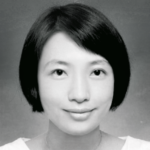 WANG Yao 王遥 Director General, International Institute of Green Finance, Central University of Finance and Economics Professor Wang Yao is the Director General of International Institute of Green Finance (IIGF) of the Central University of Finance and Economics (CUFE). She also serves as Deputy Secretary General of Green…
WANG Yao 王遥 Director General, International Institute of Green Finance, Central University of Finance and Economics Professor Wang Yao is the Director General of International Institute of Green Finance (IIGF) of the Central University of Finance and Economics (CUFE). She also serves as Deputy Secretary General of Green…
Read more... -
12 Dec
#75 – Event Report – Far Regions, Close Ties: Are We Underestimating China’s Impact on Latin America?
SPEAKER
GUO Jie 郭洁, Associate Professor, School of International Studies, Peking University
VIDEO INTERVIEW (published on YouTube, VPN needed)
REPORT
Tan lejos, tan cerca. So far away, so close. When it comes to Latin America and China, many would assume that the striking geographical distance between these parts of the world would impose limits on their proximity. As ThinkINchina event#75 speaker Guo Jie, an associate professor at Peking University’s School of International Studies, mentioned at the very beginning of her lecture, even former Chilean president Michelle Bachelet once said that “if Chileans keep digging down in the ground, they will eventually reach China.” While for a great number of Latin Americans it might be true that China has taken the imaginary form of a distant land, as political and economic ties expand, professor Guo argues, these two far-flung places are growing closer than ever before.
Starting with the theme of trade, Guo Jie claimed that China’s accession to the World Trade Organization in 2001 opened a window of commercial opportunities between China and Latin America. Soon enough, China became an important source of imports as well as a key destination of exports to a number of nations within the region. From the beginning of the XXI century until 2018, the bilateral Sino-Latin American trade volume increased 24 times — surpassing 300 billion USD last year. Today, China is the largest trading partner of countries including Brazil (the largest Latin American economy), Chile, Peru, and Uruguay. Furthermore, the Asian giant comes second in Argentina, Colombia, and Venezuela, among a few others. Behind this “trade miracle”, important structural issues persist, professor Guo argued. The asymmetric profile of the commercial flows between China and Latin America is particularly serious. While Latin American countries mainly sell agricultural or extractive products to China (such as soybeans, ores, petroleum, copper), the Chinese, on their turn, import more diverse and mostly manufactured exports (like electrical machinery and equipment, machinery and mechanical appliances, motor vehicles and parts). Optimising the trade structure, expanding new trade areas, and enhancing mutual trade security are the main challenges to ensure that China and Latin America advance towards a healthier and more sustainable relationship, Guo asserted.
Moving on to outward foreign direct investments (OFDI), professor Guo Jie pointed out that, although more scarce investments activities have occurred for a longer period of time, Chinese investments in Latin America have mostly take place during the last decade. Initially, around 80% of such investments were characterised by a resource-seeking strategy. In the last few years, China’s OFDI to the region have achieved considerable diversification related to the investor type, investment field, and geographical distribution of ventures. Investments have no longer only been a mean of gaining natural resources, but rather an opportunity to explore overseas markets, reduce production and logistics costs, transfer overcapacity, increase competitiveness, and increase R&D competence. Despite a sustained slowdown over the past five years, Chinese capital flows to the region continue to grow.
Professor Guo Jie also highlighted the diplomatic relations between China and the largest economy in the region – Brazil. As a case study, professor Guo analysed president Jair Bolsonaro’s radical shift in his previous anti-China rhetoric during his first visit to the world’s second-largest economy in October 2019. The “Old Bolsonaro” and “New Bolsonaro” depict an economic pragmatism that puts aside common populist discourses on China, in favour of a proactive partnership established through bilateral platforms and multilateral cooperation frameworks, such as BRICS. Despite this, “the Bolsonaro factor” cannot be ignored, as political ideology still matters. Meanwhile, the possible continued deterioration of Sino-US relations – in trade and beyond – will inevitably bring uncertainties to the current strategic partnership between China and Brazil, professor Guo declared.
For a long time, geography has prompted China and Latin America to see each other merely as exotic, mythical and magical places. With continuing globalisation and deepening of mutual exchange, the ties between the two will expand from merely the flow of goods and capitals, to influencing politics, culture and historical processes at large.
Report written by Jordy Bolivar Pasa
For learning more about China – Latin America relations, be sure to subscribe to Shūmiàn 书面, the first website and newsletter service in Spanish and Portuguese focusing on China.
Related Posts
- 10000
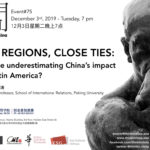 SPEAKER GUO Jie 郭洁, Associate Professor, School of International Studies, Peking University ABSTRACT China - Latin American relations have expanded to an unprecedented extent since the beginning of the new millenium. Many countries in the region now enjoy increasing amounts of trade with China. For some, China…
SPEAKER GUO Jie 郭洁, Associate Professor, School of International Studies, Peking University ABSTRACT China - Latin American relations have expanded to an unprecedented extent since the beginning of the new millenium. Many countries in the region now enjoy increasing amounts of trade with China. For some, China… - 10000
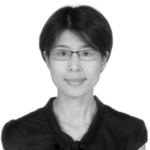 GUO Jie 郭洁 Associate Professor, School of International Studies, Peking University Professor Guo's research focuses mainly on Latin American area studies, China - Latin America relations, comparative politics, Cold War international history. Her publications include four monographs and dozens of academic articles. The most recent works include China's…
GUO Jie 郭洁 Associate Professor, School of International Studies, Peking University Professor Guo's research focuses mainly on Latin American area studies, China - Latin America relations, comparative politics, Cold War international history. Her publications include four monographs and dozens of academic articles. The most recent works include China's…
Read more... -
09 Dec
WANG Yao
WANG Yao 王遥 Director General, International Institute of Green Finance, Central University of Finance and Economics
Professor Wang Yao is the Director General of International Institute of Green Finance (IIGF) of the Central University of Finance and Economics (CUFE). She also serves as Deputy Secretary General of Green Finance Committee (GFC) of the China Society for Finance and Banking, as Secretary General of the Green Securities Committee (GSC) of the Securites Association of China, as fellow at the University of Cambridge Institute for Sustainability Leadership (CISL), as advisor to the Sustainable Finance Programme at the Smith School of Enterprise and the Environment at the University of Oxford and as consultant for the Luxembourg Stock Exchange.
Prof. Wang worked in investment banks for 7 years, before se became a faculty member of Central University of Finance and Economics in 2006. She did her post-doctorate at Bank of Beijing from 2008 to 2010. From 2010 to 2011 she was a Visiting Fellow at Harvard University. Prof. Wang is interested in Green Economy, Sustainable Finance, Climate Finance and Green Finance. She is the author of several publications on climate finance and green finance, such as Carbon Finance: Global Vision and Distribution in China (China Economic Publishing House, 2010), and Climate Finance (China Economic Publishing House, 2013).
Related Posts
- 10000
 SPEAKER WANG Yao 王遥 Director General, International Institute of Green Finance, Central University of Finance and Economics ABSTRACT In the last few years, green finance has emerged as a popular topic of discussion among legislators across the world, who seek to innovate the way they tackle environmental issues.…
SPEAKER WANG Yao 王遥 Director General, International Institute of Green Finance, Central University of Finance and Economics ABSTRACT In the last few years, green finance has emerged as a popular topic of discussion among legislators across the world, who seek to innovate the way they tackle environmental issues.…
Read more... -
09 Dec
#76 – Green Finance in China
SPEAKER
WANG Yao 王遥 Director General, International Institute of Green Finance, Central University of Finance and Economics
ABSTRACT
In the last few years, green finance has emerged as a popular topic of discussion among legislators across the world, who seek to innovate the way they tackle environmental issues. Thanks to intense efforts sustained by the government, China has ascended as one of the main players in green finance. President Xi Jinping’s pledge of creating a ‘global ecological civilisation’ has come to embody one of China’s top priorities. Despite the many successes that Beijing has achieved so far, there are several challenges lying ahead.
Join our event#76 with professor Wang Yao, from the International Institute of Green Finance of the Central University of Finance and Economics, her talk will provide an overview of green finance and China’s accomplishments in this given field. The obstacles to a further development of green finance will also be covered, in order to understand what the limitations to the Chinese economic and environmental goals are. Lastly, a projection of the future of green finance will be discussed.
VENUE
For this event we will be hosted by Tsinghua SEM X-Elerator 清华经管学院-创业者加速器, at the entrance of Innoway Zhongguancun.
Address:
Innoway Zhongguancun, Haohai Building 3rd floor, Haidian East Street 36, Haidian, Beijing
北京市海淀区海淀西大街36号中关村创业大街昊海楼写字楼3层
*On the northern entrance of the Haohai building there’s the lift that will take you to the third floor, directly at the X-Elerator.
PLEASE TO RSVP CLICK HERE
OR
SCAN THIS QR CODE
Our events are as usual for free, we kindly ask you to register in advance in order to help us in the organization of the venue, thanks! Registration will start at 6pm and close at 6.45, seats are distributed on a first come, first served basis. Arriving late won’t guarantee you a seat.
Related Posts
- 10000
 WANG Yao 王遥 Director General, International Institute of Green Finance, Central University of Finance and Economics Professor Wang Yao is the Director General of International Institute of Green Finance (IIGF) of the Central University of Finance and Economics (CUFE). She also serves as Deputy Secretary General of Green…
WANG Yao 王遥 Director General, International Institute of Green Finance, Central University of Finance and Economics Professor Wang Yao is the Director General of International Institute of Green Finance (IIGF) of the Central University of Finance and Economics (CUFE). She also serves as Deputy Secretary General of Green… - 71
 SPEAKERS CUI Hongjian 崔洪建, Director, Department for European Studies, China Institute of International Studies Plamen TONCHEV, Head of Asia Unit, Institute of International Economic Relations; European China Policy Fellow, Merics ThinkINchina is back with a series of online events creating opportunities for dialogues between Chinese and international experts.…
SPEAKERS CUI Hongjian 崔洪建, Director, Department for European Studies, China Institute of International Studies Plamen TONCHEV, Head of Asia Unit, Institute of International Economic Relations; European China Policy Fellow, Merics ThinkINchina is back with a series of online events creating opportunities for dialogues between Chinese and international experts.… - 66
 SPEAKER Mary Evelyn TUCKER, Senior Lecturer and Senior Researcher, Yale University; Director, Yale Forum on Religion and Ecology DISCUSSANT WU Ruihan 吴蕊寒, PhD candidate, Department of Philosophy, Peking University ABSTRACT As our ecological challenges begin to multiply around the planet, we are seeking solutions beyond science…
SPEAKER Mary Evelyn TUCKER, Senior Lecturer and Senior Researcher, Yale University; Director, Yale Forum on Religion and Ecology DISCUSSANT WU Ruihan 吴蕊寒, PhD candidate, Department of Philosophy, Peking University ABSTRACT As our ecological challenges begin to multiply around the planet, we are seeking solutions beyond science…
Read more...


